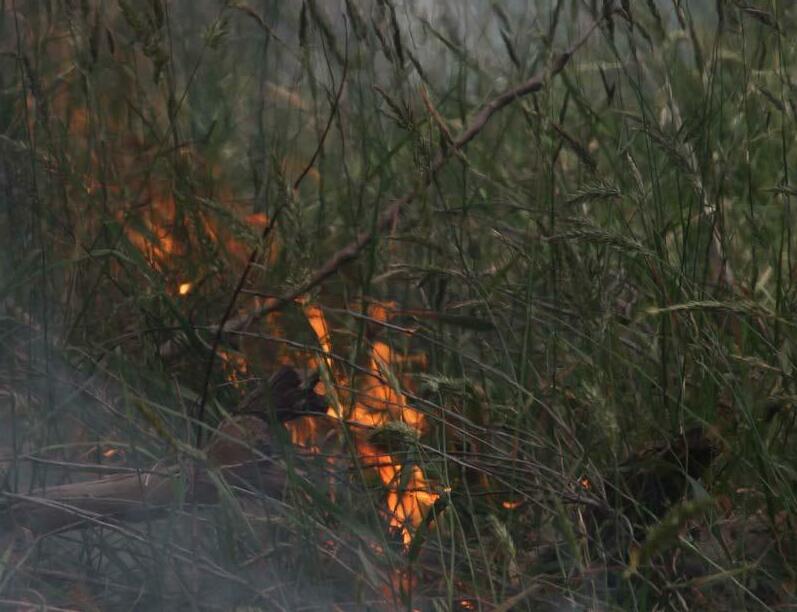
4 minute read
Lessons Management Forum: building a learning culture
Fire and emergency services are frequently the subject of reviews, inquiries and royal commissions. It is an important part of the learning cycle to question what happened, why it happened and how things could be done differently. But how can we ensure that observations gathered during these inquiries are actually transformed into lessons learnt?
ALANA BEITZ
AFAC
The 2022 Lessons Management Forum, held in person for the first time since 2019 and hosted by AFAC and the Australian Institute for Disaster Resilience (AIDR), explored the theme: ‘What does success look like?’ On 22 and 23 March, participants gathered in Brisbane and online to hear leading lessons management practitioners unpack the latest research and recent case studies.
In his opening address, Queensland Fire and Emergency Services (QFES) Deputy Commissioner Mike Wassing set the tone for the day’s proceedings by highlighting the complexities of managing lessons.
“Turning lessons into opportunities for growth and improvement is an important aspect of the process, but also one that requires perspective,” he said.
“It’s one thing to draw lessons from a past event or program, but putting them into action to improve outcomes in the form of public value, community resilience or reduction in risk requires a lot more consideration.”
South Australia Country Fire Service Chief Officer Mark Jones provided his reflections on the Kangaroo Island bushfire review, led by C3 Resilience, and the benefits of owning and sharing your mistakes.
“You won’t have time to learn from your mistakes because you won’t live long enough to make enough of them to learn. That’s the importance of learning from other people, and the experiences of other agencies. It’s why we’re so transparent with our findings,” he said.
“There’s no point commissioning reviews, audits or surveys unless you know what you’ll do with them, whatever they find. And what would it say of me—who’s hoping to preside over a learning organisation—if I, in any way, try and alter the findings or hide the conclusions? What sort of learning organisation would we be then?”
Kylie Mercer from the Office of the Inspector-General Emergency Management, Queensland, explained the importance of taking a communitycentred approach to incident reviews and reflected on the broader benefits of engaging with the Traditional Owners of K’gari, the Butchulla people, during the lessons learning process.
“Learning with the Butchulla people helped us better to understand First Nations peoples’ knowledge about fire management and the protection of cultural assets. It also helped us to understand that early engagement planning provides better results for First Nations communities if it is co-designed and co-delivered,” she said.

“We are implementing these lessons into our stakeholder engagement framework and our internal guidance for our staff. This work will complement engagement with culturally and linguistically diverse communities in the future.”
AFAC Lessons Management Award
The 2022 AFAC Lessons Management Award was sponsored and presented by C3 Resilience, celebrating excellence in lessons management practice.
Disaster Relief Australia (DRA) was highly commended for the development and delivery of their Post Activity Reviews. DRA National Planning Manager Luke Gordon accepted the award and presented the project to the forum, explaining that “every operation is different, and every operation we’ve done beforehand gives us something that we can learn to help us with the next one.”
The winner of the 2022 AFAC Lessons Management Award was the Department of Defence, for its COVID-19 Taskforce. The award was accepted by Geoff Cooper from the Army Knowledge Centre, who said any organisation is a learning organisation, but it was the role of lessons management practitioners to “increase the hit rate”.
“The organisation learns things, and different people will learn things and have personal experiences, [and] teams will learn from their experience as well. What matters to us is what the hit rate is and how long it takes to forget it.
“Do this job for a long time and you won’t be worrying about what the lessons are—you’ll know what the lessons are. What you’ll be worrying about is whether or not we’re applying them today, tomorrow and in 20 to 30 years’ time, and how you can [exert] influence to make sure that happens.”
It was a notion that echoed back to the opening address from Deputy Commissioner Wassing, who said: “We cannot solely rely on lessons management to inform our future. For every challenge we face as organisations and communities and individuals, we need to work towards being effective in reflecting, learning and applying those lessons and sharing them.
“We need to recognise that we are just one part of the partnership, and shared learning requires both informing and listening.”
AFAC and AIDR thank the 2022 Lessons Management Forum sponsors for their generosity and support to deliver this event: QFES (Gold Sponsor), Inspector-General Emergency Management, Queensland (Silver Sponsor), Phoenix Resilience (Bronze Sponsor) and C3 Resilience (Award Sponsor).


More information about lessons management can be found in the Lessons Management Collection on the AIDR Knowledge Hub: www.knowledge.aidr.org.au/ collections/lessons-management.
Additional information can be found on the Research Utilisation page of the AFAC website: www.afac.com.au/ initiative/research/utilisation.
1. QFES Deputy Commissioner Mike Wassing delivers the opening address of the 2022 Lessons Management Forum.
2. Kylie Mercer from the Office of the InspectorGeneral Emergency Management, Queensland, led a communitycentred review of the K’gari bushfire incident. 3. Carla Bailey of C3 Resilience presents Geoff Cooper with the Lessons Management Award for Department of Defence’s COVID-19 Taskforce.
4. Chief Officer Mark Jones shared his experience of releasing the Kangaroo Island bushfire review in a complex environment.










